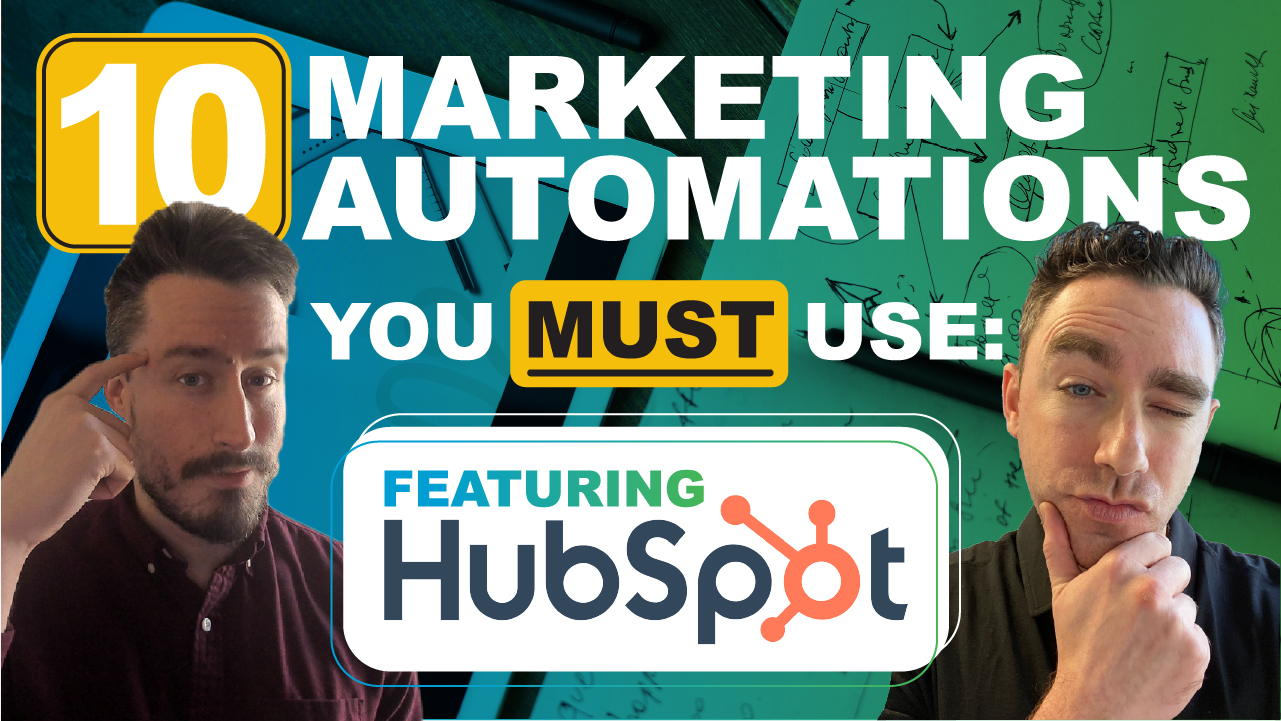
Becoming A “Learn-It-All”
What’s the secret to becoming a CMO?
Is it knowing the right people?
Is it getting your MBA?
Is it a matter of putting in the hours?
Book a 30 minute call
Reserve 30 minutes with a strategist and get 30 hours worth of value.
Grad Conn, former CMO of Microsoft NA, thinks it comes down to being an excellent learner.
And as someone who has held the CMO title at multiple companies in different industries and in stages of growth, he knows how to drive marketing success.
Below, we’ll recap some of his best tips for becoming a lifelong learner and the benefits of doing so — personally and professionally.
Actively pursue knowledge
A lot of young people today make the mistake of taking jobs at startups or smaller firms. They like the idea of freedom.
But in those settings, they aren’t necessarily learning from the best. They’re expected to be the best from the get-go. And when you walk out of school, the reality is that you know nothing.
Taking a potentially less-sexy job and adopting an ever-learning attitude can get them the boots-on-the-ground MBA they need to eventually excel in a startup environment.
Grad took this path, cutting his teeth at Proctor and Gamble, then moving to a more agile company like Microsoft. He took all of his knowledge with him and kept an open mind, ready to learn at any opportunity.
“I stayed [at Microsoft] for 12 years, and learned, again, a ton of stuff I never would’ve learned before. So I’d say that the overall framework for my life has been to take a learning attitude. Treat every new job as an educational episode, as opposed to just something you’re doing next.”
But don’t be a know-it-all
Once people start gathering institutional knowledge, they tend to become know-it-alls. But know-it-alls don’t mix well with partners, customers, or suppliers. In fact, they create caustic environments.
When Satya Nadella joined Microsoft as CEO, he realized he’d inherited a know-it-all company. It was full of wicked smart people, but those people weren’t using their knowledge in productive ways.
So in a brilliant judo move, the theme of his first company-wide email was about becoming a “learn-it-all” company. He knew that smart people want to know a lot of things, but they also want to learn about many things. This moniker, “learn-it-all,” could be something they could get behind.
Then, he modeled the learn-it-all approach himself. Every week, he’d send the company a review of the book he’d read or talk about what he’d learned in courses at the University of Washington. Seeing him walk the walk made employees want to do the same. And eventually, the culture changed.
Framing each decision as a chance to learn sets you up for a richer, more cross-functional, and more comprehensive career.
Grad says, “I’m attracted to things that I can learn from and that I can have fun doing. And so I don’t always make the most fiscally awesome decision, but I always make the best learning decision, and I think that’s worked okay for me so far.”
And use knowledge to your personal advantage
A big benefit of taking a learn-it-all approach is that your life instantly becomes more interesting.
Learning things is how you stay young, how you enjoy life. In his interview, Grad jokingly said, “I’d like my last words, just before the beer truck hits me or whatever, to be, ‘Oh, that’s interesting. I didn’t know that.’”
As life goes on, you’ll notice your peers taking the exit ramp — they’ve simply stopped learning. You’ll also notice that they suddenly seem very old; they’ve slowed down and become irrelevant.
Grad mentions that his dad eventually fell into this category. As a print advertiser, he was hesitant to use computers. He wanted to wait to learn how it worked until he could talk to it.
But by waiting, he hadn’t maintained context. And when computers and phones finally could talk, he was lost. He couldn’t conceptualize all the things devices could do.
When you stop investing in your learning, the future passes you by.
5 Ways to become a lifelong learner
1. Study the classics
The great thing about advertising is that — compared to other disciplines — it’s relatively new. It’s been around maybe 150 years. But even though it has a short history, most marketers haven’t bothered to learn it.
But the greats have. Why?
Well, studying the masters helps you understand the science of persuasion. And even though there’s some dated vernacular, the concepts are still there and are still extremely valuable.
Only with that foundation can you create your own versions of those effective strategies with some extra style and flair.
2. Read as many other books as you can
Grad pointed out that one of the secrets of advertising is that you can’t copyright an idea.
Just because someone said it before doesn’t mean you can’t say and do it now. And because the public has a very short memory, it’s easy to lift and reuse stuff.
Of course, you have to modernize it. Make it relevant to your product and audience. But not having to start from scratch gives you an enormous leg up.
Reading about past campaigns, how they worked, and the results can give you a whole host of new ideas.
For instance, Ivory Soap ran a campaign asking people to look at a photo and try to discern the mother and daughter. The implication was that the mother looked so good that the average person couldn’t tell them apart.
Dove, a tiny brand at the time, ran a similar campaign to great success. Even today, if you ask someone if they’ve seen an ad like this, they’ll call it “The Dove Campaign.” They created category leadership with a repurposed idea they’d seen elsewhere.
3. Experiment based on your knowledge
What you learn in a book or podcast or video may not work for your company. But trying it out will help you understand what could work in the future.
For example, Grad talked about seeing a Charmin campaign with a whimsical character named Mr. Whipple. Now, that same kind of commercial or ad wouldn’t work in the financial services industry.
But the idea of adopting a character to embody a brand could.
Grad knew that the company he was running, PROS, had the secret to driving profitable growth. So he created a fake “Profit Intelligence Agency,” giving a very technical and sophisticated product a more fun and elevated level. There’s almost a seventies cop show feel to it.
In the future, PROS may outgrow that strategy, just like eventually, Charmin had to give up Mr. Whipple.
“I may have to jettison PIA when profit is no longer our focus, and we move on to something else. But the PROS brand I’ve established is still the brand. It hasn’t changed. So I can bring in some other continuing character to be my foil.
There are so many examples and so many things that can be used and borrowed and so many ideas that have been abandoned.”
The real learning is that Grad picked up on an abandoned idea, applied it to his organization, and can continue learning what messaging works and why.
4. Distill your learnings into clarity for others
People are overwhelmed. They always have been, and they always will be.
If you can crystallize your learnings and apply them in the right ways, people will be more likely to pay attention. The brain inherently wants to create a simpler environment.
A great example of this is the loyalty that Coke created. It’s amazing how they’ve distilled all the aspects of their products into one thing — a superior brand to Pepsi.
People don’t want to think about what to drink. And giving them an easy answer, Coke, works wonders.
In B2B marketing, you see this in the form of a competitor page. If you can condense the differences between your product and your competitors in a memorable, useful way, you’ll be known for helping buyers make a more informed decision.
And this works even if you’re not a leader in the space. This strategy works wonders for establishing your company as a real contender.
5. Expand your horizons
Grad made the point that people are obsessed with too few campaigns. When he asks someone to name a few advertisers they respect, they just respond with, “Apple.”
You need to approach your learning as an academic discipline, reading the greats, examining new strategies, and even looking at other industries to diversify your knowledge.
And this isn’t something people learn in school.
Try reading something outside your wheelhouse — you’ll be surprised how what you learn will serve you later.
Embrace your love of marketing
You can read books and consume videos and podcasts reasonably quickly. But the key to continuing to learn is to love what you do.
Grad says, “I’ve always had a sneaking suspicion that a lot of people in marketing ended up in it accidentally. But I think what differentiates me and other leaders is that we’ve only ever wanted to do this.
We love it. We study it in our free time. I will never have enough time to read, consume, and see as many ads as I want to see.”
Tap into that curiosity, and you’ll get hungrier and hungrier for knowledge.
Want to hear Grad’s other tips for scaling the marketing ladder? Listen to his episode on the Performance Marketing Insiders podcast.
And if you’ve been as motivated to learn as we were after hearing Grad talk, attend our next monthly Growth Clinic hosted by expert digital marketing leaders.
Bonus: A few of Grad’s recommended books
Most newsletters suck...
So while we technically have to call this a daily newsletter so people know what it is, it's anything but.
You won't find any 'industry standards' or 'guru best practices' here - only the real stuff that actually moves the needle.







